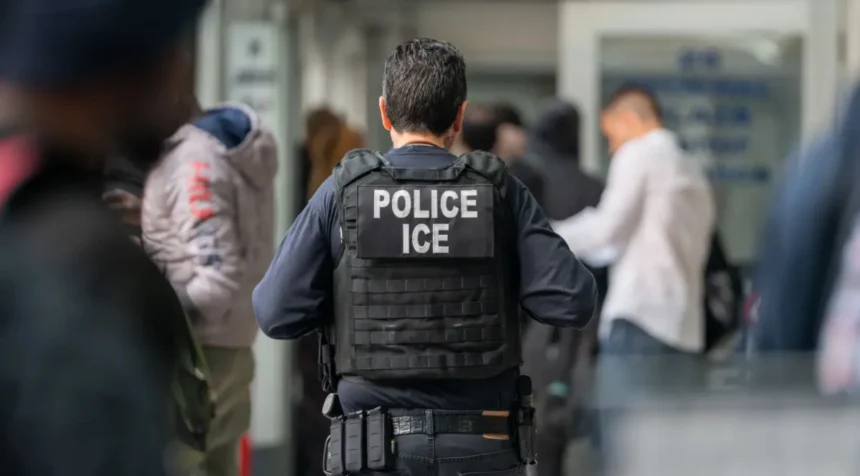Immigrant communities are scared of ICE raids 2025 in Connecticut that have surged this year to 2025. Enforcement has resulted in increased deportations and, in haste, lawyers are scrambling to identify and defend deportation cases. After a few days, it is becoming painfully obvious that a lot of immigrants are staying away from public spaces because of uncertainty around arrests. Legal battles have turned more difficult because of ICE’s lack of transparency. Immigration policies and legal protections have become a subject to debates that intensified because of this crisis.
How Connecticut Lawyers Are Mobilizing Amidst Increased Deportations
Connecticut has become a scene of a surge in deportation cases, and legal professionals there have come together to address this by forming task forces and legal networks. Legal aid, and in other cases policy advocacy, is provided directly by groups like the ACLU and immigration law groups. Cases are tracked, pro bono support is provided, and affected communities are educated via collaborative efforts. They are also looking for legislation to change for the protection of immigrant rights. These are to be initiatives to ensure that the due process is carried out and to protect these vulnerable people from ICE raids 2025.
Navigating the Complexities of Immigration Law During Heightened Enforcement
U.S. immigration law is extremely complicated from a statutory point of view, consisting of a thicket of statutes and regulations. It proves to be very complex for the legal professionals who find it difficult to catch up with the fast pace of policy changes and their consequences. The constant change in immigration policies, usually changing in line with political changes, demands the attorneys to observe and have to adjust for their clients amidst ICE raids 2025.
How Increased ICE Raids 2025 is Affecting Connecticut’s Immigrant Populations
Family disruption, anxiety, trauma, and financial instability are most acutely felt by children when immigration enforcement happens. After a parent is deported, many remain out of a home and behind in school. Communities are afraid of authorities and thus do not report crimes, which leaves public safety more or less broken. As immigrants are made to feel targeted and unprotected, they lose trust in institutions. Such effects lead to long-term social and psychological impact on whole communities due to ICE raids 2025.

Analyzing the Federal Directives Leading to Intensified Deportation Efforts in 2025
Deportation efforts have become recent federal immigration policies have been intensified, and arrests and removals are now being done across the country. In Connecticut, these policies have prompted a dramatic increase in ICE’s operations in workplaces and in public areas, and with greater pressure being put on immigrants and their family members. This pressure forces federal enforcement to work with local authorities to cooperate on busts that run contrary to immigrant-friendly policies. Others are pushing back, looking for protections for the affected parties, especially during ICE raids 2025. As a result, immigrant communities are feeling much more fearful and uncertain.
Connecticut’s Stance on Cooperation with Federal Immigration Authorities
The Trust Act in Connecticut limits local law enforcement’s cooperation with ICE and limits detentions based on immigration status. In recent debates, there has been a debate with federal authorities about whether to enhance collaboration. Strict enforcement is urged by some while others fear it would undermine trust in communities. Immigrant advocates worry about ratcheting up cooperation might deter crime reporting and public safety work. This balance on how much enforcement and community protection is maintained has yet to be overcome by the state, especially with the frequency of ICE raids 2025.
Organizations Assisting Immigrants and Legal Professionals During the ICE Raids 2025
But several local and national organizations are supporting immigrants affected by ICE raids 2025. The ACLU of Connecticut and Connecticut Institute for Refugees and Immigrants (CIRI) provide assistance such as legal aid, advocacy, and emergency services. There are organizations like RAICES and the National Immigration Law Center who provide legal resources and policy support on a national level. They also organize workshops and outreach programs to familiarize people with their rights. This effort is to enable immigrants and to protect due process protections amidst ICE raids 2025.
Connecticut Residents’ Views on the Increased ICE Raids 2025 and Deportations
With ICE raids 2025 fresh in mind, reactions in public have not been good, immigrant communities including many undocumented families have been afraid and bypassing public places. Those affected are being supported by schools and workplaces. Media coverage takes hold, but the coverage is biased toward rights or police. This divide influences public opinion on how to deal with immigration. It is in the midst of this debate that tensions between humanitarian concerns and security enforcement are playing themselves out, fueled by ICE raids 2025.
Addressing the Emotional Toll on Immigrants and Their Advocates
Immigration raids can cause significant psychological distress among affected individuals and families, leading to anxiety, depression, and trauma. To address these challenges, organizations like the National Immigration Law Center and the National Immigration Project offer legal assistance and resources. Additionally, community groups provide mental health support and counseling services to help immigrants and their advocates cope with the emotional impact of enforcement actions related to ICE raids 2025.
The recent surge in ICE raids 2025 across Connecticut has profoundly impacted the state’s immigrant communities, legal professionals, and public institutions. As these enforcement actions continue, the collective response will shape Connecticut’s social fabric and its commitment to justice and inclusivity amid ICE raids 2025.




